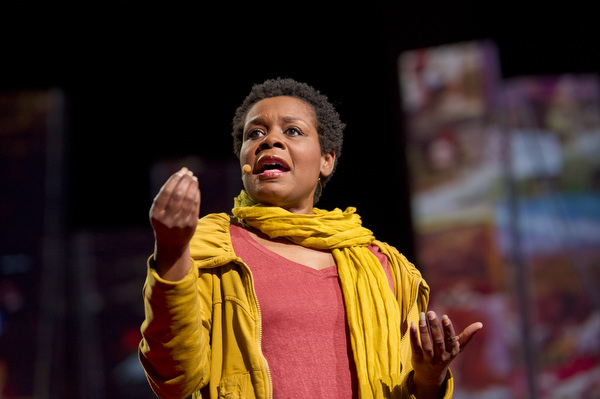Photo: James Duncan Davidson
Awele Makeba is here not simply to tell us a story. She’s here to act one. Her story takes place in Montgomery, Alabama, on March 2, 1955, and her hero is the courageous teenager Claudette Colvin, who stayed seated on a segregated bus even when instructed by the driver to make room for white people. “It’s my constitutional right,” Colvin had told the driver, timidly, who promptly called the police–and set off a chain of reactions that went all the way to the Supreme Court.
It’s a beautiful, lyrical performance that seems to strike a particular chord, especially with some of the children assembled in the audience. Channeling one of Colvin’s teachers, Makeba asks, “do you love your beautiful brown skin, children?” “Yes!” answer some of the kids, nodding.
The role of Claudette as an “upstander” teaches us important lessons that challenge us today. “What does it mean to be a participant, a repsonsible citizen in a democracy?” asks Makeba. Such conversations allow her to speak about the unspeakable, to discuss the ongoing racism that is a part of society. “I tell you this story today in honor of the legacy of young people who have come before as guideposts and signs,” she says. Claudette Colvin struck down the constitutionality of segregated seating. We should similarly work to be the change we want to see in the world.

Comments (5)
Pingback: Stories: Legacies of Who We Are | @Ted_Ed via @YouTube | Building Heroes